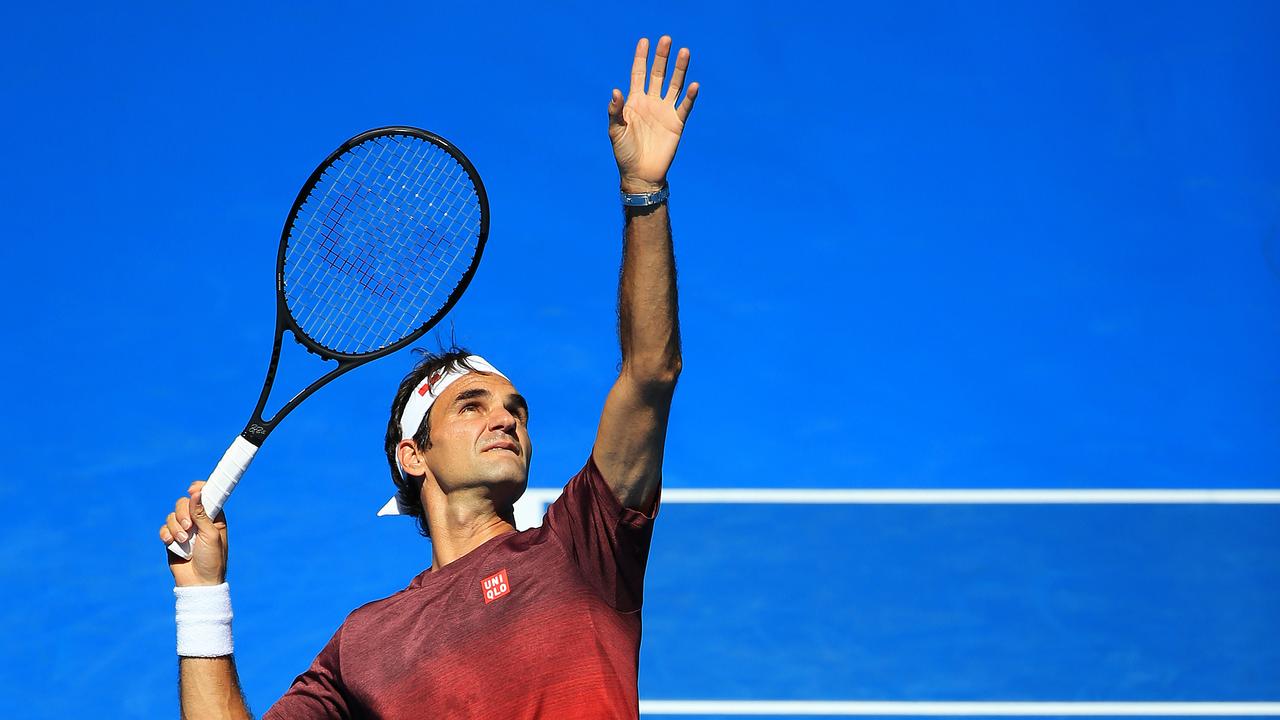
Roger Federer, who is frequently regarded as one of the best athletes of all time, became a global phenomenon outside of the tennis world. Millions of people all around the world look up to him as an inspiration because of his incredible career, which has been characterized by his graceful playing style, intense competitiveness, and kind manner. Federer’s path exemplifies what it means to be a champion and a true gentleman, from his unparalleled success on the tennis court to his humanitarian ventures and sportsmanship.
Early Times: A Quick Look at Greatness:
Born in Basel, Switzerland, on August 8, 1981, Roger Federer’s early days as a tennis player were marked by raw talent but also a fiery temper. In his teenage years, Federer’s emotions would sometimes get the better of him on the court, but he soon learned to channel that passion into refining his game. He embraced discipline and patience, two qualities that would go on to define his illustrious career.
Federer’s rise to prominence was swift. He captured his first Grand Slam title at Wimbledon in 2003, defeating Mark Philippoussis. This victory marked the beginning of what would become an unprecedented reign at the top of men’s tennis. His grace, precision, and seemingly effortless movement on the court earned him widespread admiration, making his style not only effective but also beautiful to watch.
The King of Wimbledon:
Perhaps no tournament is more synonymous with Federer than Wimbledon. Over the years, he made the lush grass courts of the All England Club his personal kingdom. Federer has won a record eight Wimbledon titles, surpassing legends like Pete Sampras and Björn Borg. His dominance on grass became legendary, with his rivalry with Rafael Nadal producing some of the most iconic moments in the sport, particularly their 2008 Wimbledon final, widely considered one of the greatest matches of all time.
Beyond his victories, Federer’s comportment at Wimbledon has been a model of sportsmanship. Even in defeat, he has handled himself with grace, applauding his opponents and always maintaining a dignified presence. This humility, combined with his talent, has elevated Federer to a rare echelon of sporting idols.
An All-Court Maestro:
Federer’s greatness, however, was not limited to just Wimbledon. His adaptability and skill across all surfaces—grass, clay, and hard courts—are a reflection of his deep understanding of the game and his extraordinary work ethic. He has won 20 Grand Slam titles, including six Australian Open titles, five US Opens, and one French Open title. This versatility is what sets Federer apart from many of his contemporaries. He has evolved his game as surfaces and competition changed, proving himself time and again against the best.
While his rivalry with Nadal is celebrated, Federer’s duels with Novak Djokovic also define an era in tennis. His ability to push boundaries and remain competitive, even against younger, physically imposing players, is a testament to his remarkable longevity and adaptability.
Federer’s Impact Beyond Tennis:
Roger Federer’s impact is not confined to the tennis court. He has been a role model for athletes across all sports. His approach to fitness, recovery, and mental focus has inspired a new generation of sportspeople. Furthermore, Federer has been deeply involved in charity work. Through the Roger Federer Foundation, he has dedicated himself to improving the lives of underprivileged children, primarily in Africa and Switzerland. The foundation focuses on providing access to education, which Federer believes is a key factor in empowering future generations.
Moreover, Federer’s collaborations with brands like Nike, Rolex, and Uniqlo have made him one of the most marketable athletes of all time. Yet, his charm lies in his authenticity; despite his fame and fortune, Federer has remained grounded, consistently showing gratitude for his fans and the opportunities he has had in life.
Longevity and Resilience:
One of the most inspiring aspects of Roger Federer’s career is his longevity. Unlike many athletes who peak in their 20s, Federer has been competing at the highest level well into his 30s. Even after surgeries and physical setbacks, Federer has consistently returned to the court with the same drive and determination. His ability to manage injuries and maintain his physical fitness while playing with a timeless finesse is a source of inspiration for both athletes and fans alike.
A Lasting Legacy:
Roger Federer’s legacy is one that will endure for generations. He has set a standard not only for tennis but for all of sport. His records, many of which remain unbroken, speak to his extraordinary talent, but his off-court demeanor—his grace, humility, and kindness—speaks to his character. As Federer enters the next chapter of his life following his retirement from professional tennis in 2022, he leaves behind a sport richer for his presence.
His story is a reminder that greatness is not just about winning titles; it’s about how you carry yourself in moments of triumph and defeat. Federer has shown that being a champion is not merely about physical skill but also about heart, dedication, and humility. His legacy will inspire athletes, sports fans, and all who strive to be the best versions of themselves for years to come.
Roger Federer will forever be remembered as an icon not only for his achievements but for his example of how to live life with excellence, both on and off the court.











